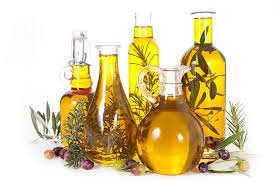PhD in Oils Oleochemicals & Surfactants Technology: Introduction, Admission, Registration, Eligibility, Duration, Fees, Syllabus 2024

Introduction:
A Ph.D. in Oils, Oleochemicals & Surfactants Technology is an advanced study in Chemical Engineering focusing on the production, characterization, and application of oils and surfactants. This specialized field explores the chemical processes involved in creating oleochemicals from natural fats and oils, which are key components in various industries, including cosmetics, pharmaceuticals, and food. The program typically involves rigorous coursework, research methodologies, and a dissertation that contributes to the scientific understanding or technological advancements in the field.
Admission Process:
- Eligibility Check: Ensure you meet the criteria with a relevant master’s degree and undergraduate background.
- Application Submission: Complete the application form with required documents, including transcripts, CV, and letters of recommendation.
- Entrance Exam: Score a minimum percentage in an institute-level written test.
- Interview: Qualify for and perform well in the interview round.
- Merit List: Admission is based on merit, considering exam and interview scores.
Eligibility:
- Bachelor’s Degree: Candidates should have completed any Bachelor’s degree or its equivalent from a recognized university.
- Minimum Marks: For the General category, a minimum of 60% aggregate marks is required. For reserved categories, the minimum aggregate requirement is 55%.
Completion Time:
The completion time for a Ph.D. in Oils, Oleochemicals & Surfactants Technology can vary depending on the specific program and individual progress. However, it typically requires a minimum of four to five years of full-time study, research, and dissertation preparation[1][2][3][4][5][6]. Keep in mind that the duration may vary based on research topics, institutional requirements, and the student’s pace of study. It’s advisable to check with the university offering the program for precise information.
Career Opportunities:
- Academia: Teach and conduct research at universities.
- Research Scientist: Contribute to innovative studies in the field.
- Industry: Work in edible oils, surfactants, cosmetics, and related sectors.
- Entrepreneurship: Start your own industry or consultancy.
- Further Education: Pursue postdoctoral research or specialized courses.
Syllabus:
- Advanced Chemical Engineering Principles: In-depth study of chemical process design and analysis.
- Oils and Fats Processing: Techniques and technologies for extracting and refining oils.
- Oleochemicals Production: Chemical processes for converting oils and fats into oleochemicals.
- Surfactant Science: Exploration of surface-active agents’ properties and applications.
- Product Formulation: Development of products using oils, oleochemicals, and surfactants.
- Quality Control: Ensuring product standards and specifications are met.
Internship Opportunities:
- Research Internships: Engage with ongoing projects at research institutions or universities.
- Industry Placements: Gain hands-on experience in companies specializing in oils, oleochemicals, and surfactants.
- Laboratory Work: Participate in lab-based research to apply theoretical knowledge.
- International Programs: Explore global internship programs that offer exposure to advanced technologies and practices.
- Collaborative Projects: Work on joint projects between academia and industry.
Scholarship and Grants:
- Institute Scholarships: Some institutes offer scholarships based on merit or need.
- Research Grants: Funding for specific research projects or areas of study.
- Government Scholarships: National or state scholarships for doctoral studies.
- Industry Sponsorships: Companies may sponsor research in relevant fields.
- International Fellowships: Opportunities to study or research abroad with financial aid.
- Teaching Assistantships: Paid positions that involve teaching or assisting in university courses.
- Conference Grants: Support to present research findings at national and international conferences.
FAQs:
What is the focus of this Ph.D. program?
It specializes in the study and development of oils, oleochemicals, and surfactants, with applications in various industries.
How long does the program typically take?
The duration is usually 3 to 5 years, depending on the research topic and institution.
What are the career prospects after completion?
Graduates can pursue careers in academia, research, industry, or start their own ventures related to chemical engineering.
What is the eligibility criteria for admission?
Candidates should have a relevant master’s degree with a minimum percentage of marks as specified by the institution.
Is there an entrance exam for the program?
Some institutions may require an entrance test as part of the admission process.
Are there scholarships or funding available?
Many institutions offer scholarships, grants, or assistantships to eligible candidates.
